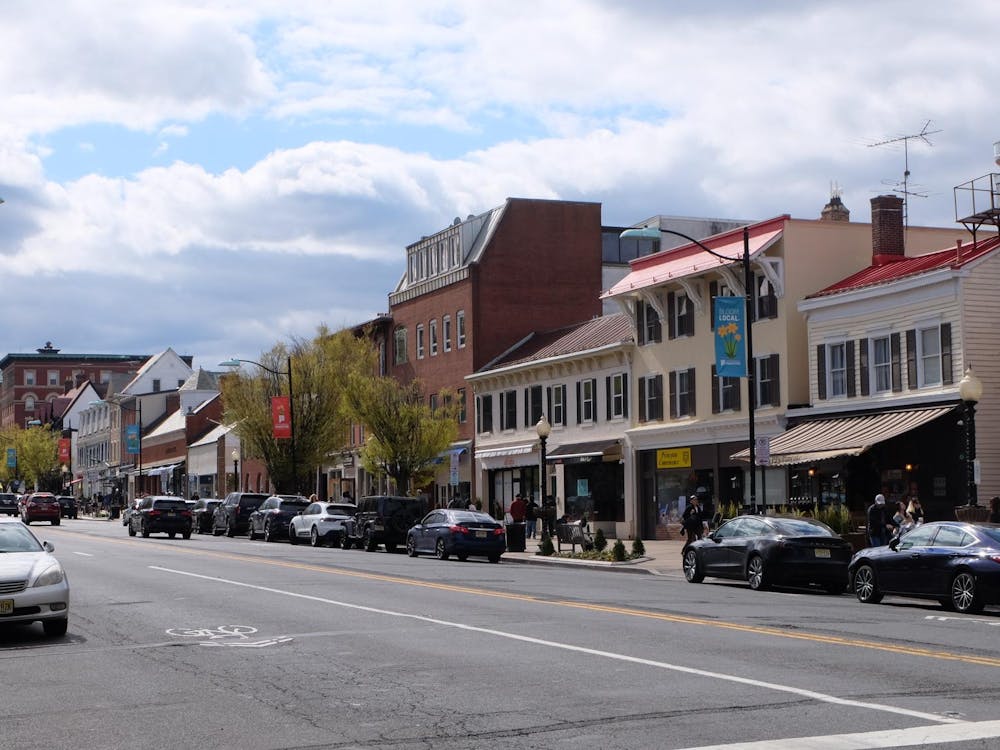The University announced last week the creation of the new Stanley J. Seeger ’52 Center for Hellenic Studies, tasked to “oversee, fund, initiate and manage research on all aspects of Hellenic studies, at Princeton and abroad.”
The center, initially established last May, will be intimately linked with the Program for Hellenic Studies, with the former sponsoring a wide variety of activities and the latter focusing on undergraduate and graduate teaching.
Dimitri Gondicas ’78, newly appointed director of the Seeger Center and executive director of the program since its creation, described the center as an expansion and consolidation of the work done by the program, which is now part of the center and its primary focus.
The center is named in honor of Stanley J. Seeger, who graduated from Princeton in 1952 with a bachelor’s degree in music and master’s degree in fine arts. His donation of $2 million in 1979 created the Stanley J. Seeger Hellenic Fund, which was crucial to the founding of today’s Program in Hellenic Studies.
Seeger passed away last July, soon after the program celebrated its 30th anniversary. His contributions to the furthering of Hellenic studies at the University have made him what President Shirley Tilghman calls Hellenic studies’ “foremost benefactor.”
In the beginning, the program, which began as a committee on Hellenic studies, was very small and entirely undergraduate-focused. About 20 years ago, undergraduate offerings grew above the level of the program and certificate, and the program began to offer fellowships and courses at the graduate level. The latest stage was the creation of a post-doctoral program, which established research at a more advanced level.
From the start, Seeger’s gift allowed the program to put “a lot of emphasis on travel and study and research in Greece, which was quite an innovation at the time,” Gondicas explained, adding that the gift also incorporated creative arts and creative writing as part of an academic program.
Gondicas also attributed the success of the program to how it was built from the ground up — investing in people and inspiring them with intellectually engaging offerings — rather than using a top-down approach with a focus on building a professorship and hoping people would flock to it.
The program has collaborated with many of Princeton’s academic departments. While it has core ties to the classics, history and other humanities departments, new initiatives with the sciences and engineering are now beginning to bear fruit.
One such project is the Thera Frescoes project, which has archaeologists collaborating with Princeton’s computer science department. Members of both teams travel to Santorini each year to help Greek archaeologists restore frescoes. Computers use matching techniques to suggest to conservators possible matches between broken pieces, helping speed up the restoration process.
The program also funds other trips abroad, with over 100 Princetonians involved each year.
Program concentrator Andreas Sakellaris ’12 received support to travel to the Greek islands in the summers of 2009 and 2010 to learn his native language. Such travels, Gondicas said, are important because they allow participants to “study their world and ours in a truly interdisciplinary way.”

“When you have a music major and a classics major and a Byzantine scholar together ... it really happens, on the spot and on site,” he said.
But despite its many activities and range of courses, the program’s number of concentrators is relatively small. Sakellaris said he felt that the program needs to work harder to stay in touch with students who take classes in Hellenic studies.
Hellenic studies concentrator and English major Eunice Chan ’12 agreed.
“Many times students will be taking a class that’s cross-listed in Hellenic studies and not even know it,” she said.
Gondicas noted, however, that he is happy with the numbers, which have ranged in the past from three to seven concentrators a year.
“It’s a relatively narrow field,” he said. “And for us, the focus has always been on quality over numbers.”
Gondicas said his goals for the center include the establishment of a graduate certificate program open to students from all humanities disciplines. A collaboration with the Benaki museum in Greece is also in the works, though Gondicas said he believes this initiative will take a few more years to implement.
The main area Gondicas would like improved is access to publications, he said. He added that he would like to strengthen the program’s offerings in the social sciences.
Overall, however, he said he is pleased with Hellenic studies at Princeton.
“It’s full of good people and good energy,” he said. “There is a dimension that is human and friendly, yet a level of high professionalism. It’s a delicate balance, but a quite unique part of our great strength.”







